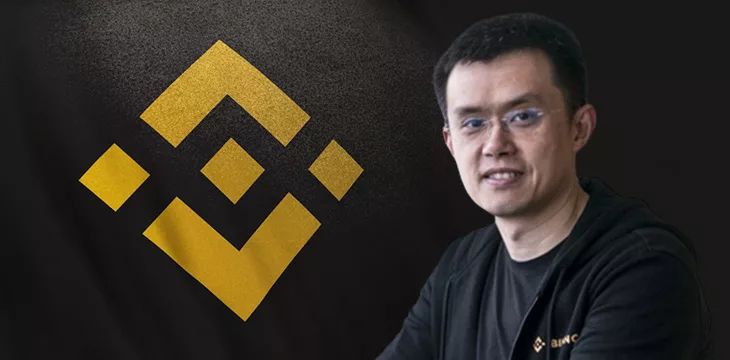|
Getting your Trinity Audio player ready...
|
Binance founder Changpeng ‘CZ’ Zhao will have to cool his heels in the U.S. a little longer as a federal judge wants more time to consider whether he’s a flight risk.
On Monday, U.S. District Judge Richard Jones issued an order following last week’s decision by Magistrate Judge Brian Tsuchida to allow CZ to return to his residence in Dubai ahead of his sentencing next February. Tsuchida made his decision after CZ and his digital asset exchange reached a $4.3 billion settlement with the U.S. Department of Justice (DoJ) to resolve years of noncompliance with U.S. anti-money laundering and banking laws.
Prosecutors almost immediately challenged the terms of CZ’s release, claiming that his vast wealth and the United Arab Emirates’ lack of an extradition treaty with the U.S. made it unlikely that CZ would opt to return to the U.S. for sentencing. CZ’s attorneys rubbished this argument, claiming their client wanted to put this whole sordid mess behind him once and for all.
But with prosecutors filing a motion last Friday indicating that they could seek a custodial sentence well above the 18 months called for under the sentencing guidelines—possibly as long as 10 years—and CZ’s attorneys stating that they’re hoping their client can avoid prison entirely, Judge Jones apparently decided he needed more time to mull things over. Jones stayed the bail condition, allowing CZ to return to the UAE “until such time as this Court resolves the Government’s motion for review.”
The government wasn’t seeking to keep CZ behind bars until his sentencing, merely within the borders of the continental U.S., where they felt “there are certain ways” to ensure he shows for sentencing in February. In making his recommendation for release, Judge Tsuchida pointedly told CZ that it was a “close call,” which may have helped convince Judge Jones that he should consider the matter carefully before ruling.
As Tsuchida warned CZ a week ago during his initial bail hearing, Judge Jones will consider ‘what happened’ to bring about CZ’s legal quandary in the first place. “Not just the specific offense for which you are pleading guilty, but the entire picture … specifically what your role was, how central were you, did you have a leadership role, [were] your actions more egregious, less egregious, something aggravating?”
With the DoJ having evidence of CZ on multiple occasions directing his underlings to ignore regulatory requirements that would have impeded Binance’s profit-making potential, ‘central,’ ‘more egregious,’ and ‘something aggravating’ seems easy hurdles to clear.
CZ has yet to comment publicly on Monday’s development, likely keeping quiet out of fear of giving Judge Jones any reason to rule against him. Regardless, CZ will be far less certain now of his ability to return to Dubai than he was a week ago.
SEC not done with CZ yet
Binance continues to play defense on another front in this war, as the civil complaint filed by the Securities and Exchange Commission (SEC) this summer wasn’t part of last week’s settlement. On Monday, a status conference on the SEC complaint was held in federal court in New York.
Attorneys representing Binance’s U.S. offshoot Binance.US, asked Magistrate Judge Zia Faruqui to consider the entire matter moot, given last week’s events and the fact that Binance.US customers have withdrawn roughly 90% of assets held on the exchange following the complaint.
The Wall Street Journal indicated that Faruqui wasn’t necessarily opposed to this suggestion, saying at some point he might “have to make a leap of faith and say enough is enough.” But the SEC is apparently still digging for dirt proving CZ had back-door access to assets held on the allegedly arms-length U.S. exchange and thus bolsters potential fraud charges. Faruqui told both sides to try to hash out their differences on their own before reporting back on December 15.
The future is unwritten, but the ‘bridge out ahead’ signs are pretty clear
While CZ keeps quiet, Monday brought the first official blog post from Richard Teng, CZ’s replacement as Binance’s CEO. Teng, who joined Binance in 2021 and previously served as its head of regional markets, said he was taking on his new role “with the deepest humility” while praising CZ as “the visionary founder of this incredible company.”
Like his post-settlement tweets last week, Teng’s blog sought to assure customers that Binance’s “fundamentals are very strong.” (Emphasis in the original.) Eager to stem the post-settlement tide of outflows from Binance—another $200+ million left the exchange between Sunday and Monday—Teng insisted that customers’ “assets are protected.”
Teng claimed that the company has “turned the page on Binance’s historical challenges” and “systematically worked to address its past compliance issues” by hiring a bunch of new staff to “strengthen Binance’s compliance program and culture.”
Strengthening an effectively non-existent compliance program and transforming a regulatory-averse culture will prove tougher than Teng lets on. As this thoroughly entertaining op-ed on Binance’s ‘Bond villain compliance strategy’ makes clear, Binance’s habitual crossing of so-called red lines wasn’t simply a profitable strategy; it was done performatively. Noncompliance is Binance’s brand. Altering that perception will take more than performative declarations.
In terms of the challenges facing Teng, one can’t help but recall Russia’s early-90s post-Communist transition from a centralized planned economy to unfettered capitalism. This shift was so abrupt and so jarring that the country was an economic wasteland for most of the 90s and ended up under the control of KGB strongmen and Mafiosi. Even now, its GDP is barely larger than Canada’s, a nation with roughly one-quarter of Russia’s population.
A more direct parallel would be Bitmex, which not so long ago was among the world’s top exchanges in terms of trading volume. But following U.S. enforcement actions that mirrored the charges leveled against Binance, it is currently struggling to generate over $100,000 in daily volume. Its former CEO, Arthur Hayes, once a ‘crypto’ thought leader on a level with CZ, is now basically a blogger. As this site noted three years ago, CZ’s neck was already being measured for the noose that hung Bitmex out to dry.
Forced march to compliance will push out customers
Teng’s charm offensive also saw him interviewed by Fortune’s Jeff John Roberts on the sidelines of its Global Forum event in Abu Dhabi. Teng claimed that Binance is “committed to transparency as an organization,” conveniently omitting the fact that this transparency is a legal requirement of Binance’s settlement with U.S. authorities.
The settlement grants U.S. authorities unprecedented access to all transactions the exchange has processed since 2018, as well as the ability to monitor all current activities on the exchange for the next five years. Simply put, with a large portion of Binance’s customer base being criminal in nature, a lot of these customers will be taking their business elsewhere (presumably to an exchange run by CZ’s BFF Justin Sun, who has yet to learn any lessons from his buddy’s downfall).
Asked when Binance might submit its vast holdings to something resembling an independent third-party audit, Teng hedged, saying this step must be preceded by the adoption of a conventional corporate structure, including a board of directors and (shock!) a physical headquarters with a verifiable address.
Once all that’s in place, Teng said, “I think those financials will be what we’ll be sharing. We’ve all known that auditors [require them], but the regulatory agencies will require all those things as well.” As for when all this transparency might occur, Teng said only that he has a “robust timeline” for implementation.
While we’re waiting, Teng’s continued characterization of Binance’s criminal antics as “missteps” suggests a desire to wipe the slate clean, as if this was Year Zero and everything that transpired had been memory-holed out of existence and need never be mentioned again.
Teng clearly doesn’t recall the many other jurisdictions where Binance played fast and loose with the law, knowingly lied to regulators, and cheated the taxman. Authorities in these jurisdictions will likely pursue their own financial settlements, regardless of whether they let the exchange continue operations on their soil. Teng desperately wants to close the lid on this bubbling cauldron but that’s not his decision to make.
Follow CoinGeek’s Crypto Crime Cartel series, which delves into the stream of groups—from BitMEX to Binance, Bitcoin.com, Blockstream, ShapeShift, Coinbase, Ripple, Ethereum,
FTX and Tether—who have co-opted the digital asset revolution and turned the industry into a minefield for naïve (and even experienced) players in the market.

 04-15-2025
04-15-2025 





